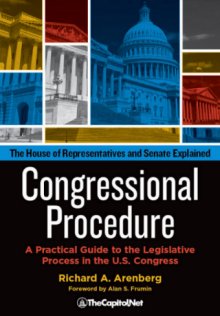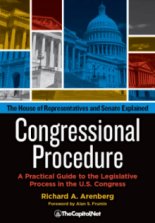Executive Privilege / Qualified Privilege (CongressionalGlossary.com)
From the Congressional Glossary – Including Legislative and Budget Terms Executive Privilege / Qualified Privilege Mark Rozell – The Looming Battle Over Executive Privilege The phrase “executive privilege” is a shorthand reference to the “qualified privilege” of the executive to decline to respond to a request for information–documents or testimony or both–from either … Read more





